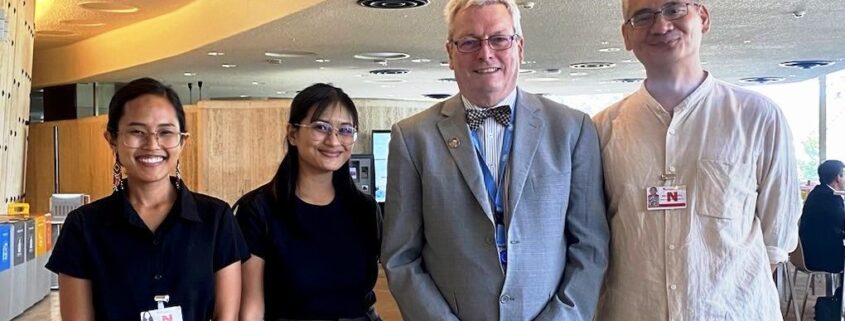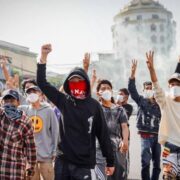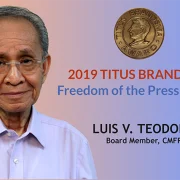Environmental group reports PH gov’t not acting on anti-climate change commitments
The year-old Ferdinand Marcos Jr. government continues to implement anti-environment projects that cause displacement and other disastrous impacts of climate change, an environmental group told the United Nations (UN) in Geneva, Switzerland.
The Center for Environmental Concerns (CEC) said large-scale mining, land reclamation and large dams being implemented under the Marcos government are causing ecological imbalance, weakening climate resilience in the Philippines.
In an interactive dialogue, CEC executive director Lia Mai Torres reported that such projects and policies are still in place despite the Philippine government’s declarations supportive of global climate change mitigation programs.
“Aside from the continuation of climate risk projects, Filipino environmental human rights defenders are not optimistic about the prospects of genuine climate action based on the principles of climate justice in the remaining five years of the Marcos Jr. administration, given the 12 cases of killings of environmental advocates and climate activists that have already occurred,” Torres said.
CEC’s intervention in the dialogue highlighted that “while important, addressing climate displacement should not preclude addressing the issues and vulnerabilities that cause displacement and other disastrous impacts of climate change.”
CEC reported that a Philippine government representative in the dialogue said that the Philippines’ disaster risk reduction and management favors interventions related to disaster displacement that are respectful of human rights.
CEC however belied the assertion, pointing out that there are no existing policy instruments in the Philippines, like many countries, that directly address climate change-induced migration.
“We are ill-equipped and poorly prepared to face internal migrations and disruptions due to climate change, much less the possible influx of climate refugees from neighboring countries.”
The dialogue entitled “Providing legal options to protect the human rights of persons displaced across international borders due to climate change” had UN Special Rapporteur on the promotion and protection of human rights in the context of climate change Ian Fry and Special Rapporteur on extra-judicial, summary or arbitrary executions Morris Tindall-Binz in attendance.
The dialogue was an event in the ongoing 53rd Regular Session of the UN Human Rights Council at the Palais des Nations in the Swiss city.
A report presented at the dialogue said that 38 million people worldwide have been displaced from their homes in 2021 while 22.3 million people were displaced by weather-related events in the same year.
Among the conclusions of the dialogue was that “the Paris Agreement should develop funding arrangements to assist persons displaced across international borders due to climate change to address their vulnerabilities.”
The CEC called on fellow Filipinos and the international community to keep a watchful eye on the Marcos Jr. administration and continue ensuring ecological balance is achieved by preventing environmentally damaging and destructive activities.
“[The Philippines must be] gearing away from false climate solutions, shifting away from the neoliberal model that facilitates the hyper-extraction by foreign interests of our natural resources, and addressing systematic inequality and poverty that strips away our capacity to adapt to climate disasters,” Torres said. # (Raymund B. Villanueva)







